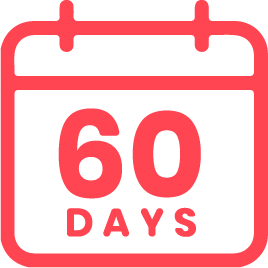why shop manta sleep
Booze Before You Snooze? Here’s Why You Should Just Say No
Whether it’s a cold frothy ale, an aged brandy you can sip slowly or glass of your favorite vino that helps you melt into your sheets at night…
You’re not alone if you think having an alcoholic beverage before bed is helping you get better sleep. About 20 percent of Americans use alcohol to help them drift off at night (1).
But does alcohol really help you sleep?
Many people report that they fall asleep faster when they’ve been drinking.
But here’s the thing: although alcohol may bring on drowsiness and quiet any lingering stress from the day, research shows that imbibing before you hit the hay actually leads to lower overall sleep quality.
Let’s explore why.
Why Pre-Sleep Drinking Is a Problem — and What Happens When You Do It
A review of 27 studies shows that alcohol reduces overall sleep quality in those who consume it right before bed (2).
That’s because pre-sleep drinking often results in...
1. Insomnia-Like Symptoms
Alcohol is a depressant, which is part of the reason it’s so effective at putting you to sleep.
What many people don’t realize, though, is that alcohol also alters the production of a chemical called adenosine — resulting in insomnia-like symptoms like waking up in the middle of the night and being completely unable to get back to sleep.
So, while alcohol can help you get to sleep… it makes it much harder for you to stay asleep. Ultimately, it’s not worth it.
2. Disrupted REM Sleep (A.K.A. Restorative Sleep)
REM is considered restorative sleep because, during REM, your brain rests and renews itself.
Getting great-quality REM sleep is vital to your ability to function at 100% on a daily basis because it helps you to feel alert, concentrate on what you’re doing, learn new things and remember things you already know.
Unfortunately, alcohol disrupts REM (3) — and you’re likely to feel groggy and unfocused as a result.
3. Extra Bathroom Trips Throughout the Night
Drinking anything before bed increases your odds of waking to use the bathroom — but drinking alcohol multiplies those odds.
That’s because alcohol is a diuretic, which increases the amount of water your body expels and causes you to need to pee more frequently than normal. And every time you wake up, your sleep is disrupted.
The bottom line: drinking before you go to sleep decreases your sleep quality and leads to trouble concentrating and feeling drowsy during the day — and the more you drink, the more pronounced the effects.
How to Sleep (Sans Alcohol)
It might be tempting to use alcohol to get some much-needed rest, especially if you’ve been having trouble falling asleep… but alcohol is not a sleep aid — and if you use it as one, you’ll wind up more drowsy than rested in the AM.
So what should you do instead of boozing before you snooze?
As always, practicing good sleep hygiene is a great way to improve the quality of your rest.
Try getting regular exercise, avoiding caffeine and nicotine in the evening, using your bed exclusively for sleeping, making your bedroom dark and cool and following a regular sleep-wake schedule (even on the weekends).
If you’re still having trouble sleeping after auditing your sleep hygiene, talk to your doctor. He or she may be able to uncover underlying sleep problems or suggest personalized remedies.
Let us know what works for you in the comments.
Sources:
(1) “How Alcohol Affects the Quality—And Quantity—Of Sleep." National Sleep Foundation, www.sleepfoundation.org/articles/how-alcohol-affects-quality-and-quantity-sleep. Accessed 30 Jul. 2019.
(2) Mann, Denise. “Alcohol and a Good Night's Sleep Don't Mix." WebMD, 22 Jan. 2013, www.webmd.com/sleep-disorders/news/20130118/alcohol-sleep#1
(3) “Debunking Sleep Myths: Does Alcohol Help or Hurt Your Sleep?” Sleep.org, www.sleep.org/articles/debunking-sleep-myths-alcohol-help-hurt-sleep/. Accessed 30 Jul. 2019.













